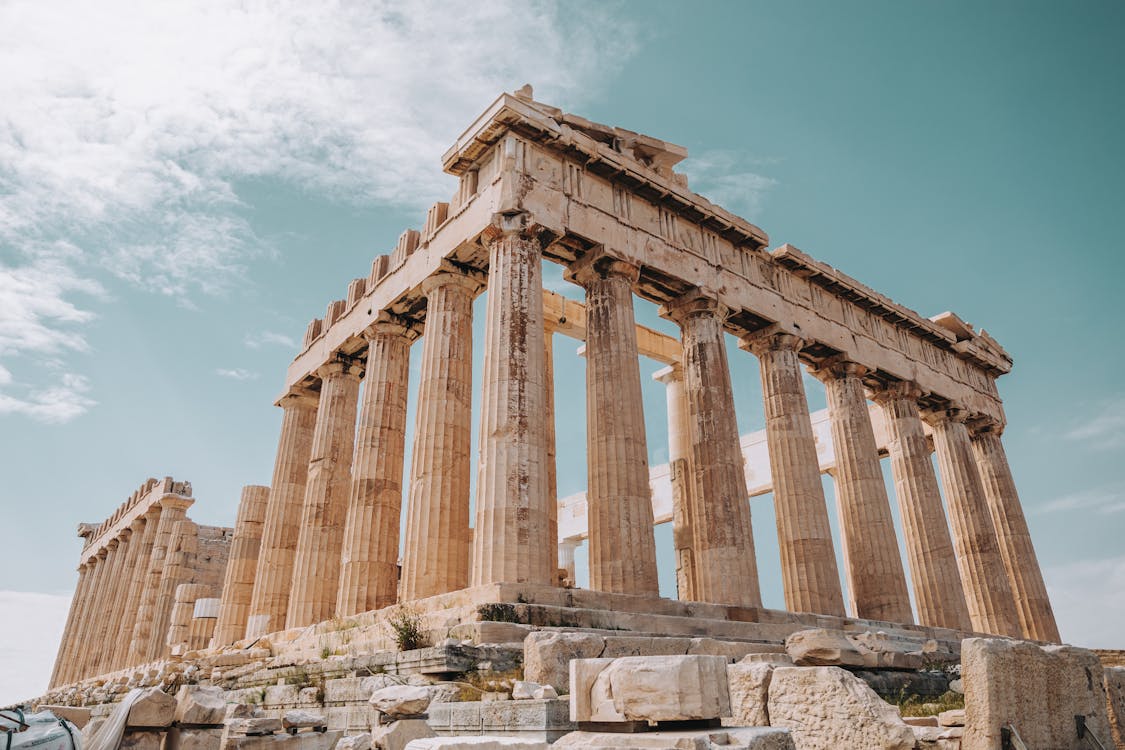Ovid's Metamorphoses Part B
 |
| (Image Information: image by Spencer Davis) |
Pyramus and Thisbe
Mars and Venus
Perseus and Andromeda
This myth focuses on Perseus who fought off a sea-serpent and beheaded Medusa.
Perseus has early cut off the Gorgon Medusa's head and carries to around with him. While traveling, he seeks for rest at Atlas's house but was turned away because of a prophecy. Perseus lifted Medusa's head before Atlas and turns him to a mountain.
Perseus comes across a beautiful young woman, Andromeda, chained to a hard rock. She was being punished for her mother's fault with Jupiter. A sea-serpent rises from the ocean to harm her. Nearby were her parents, a king and a queen, out frightened. He makes a bargain with them to rescue Andromeda, and she will be his. They agree.
I like how the story begins with Perseus already possessing Medusa's head. This sets up how his character is strong and capable. However, there isn't really any character arc for him to grow or a personality. He is a shell of a man with the character trait of strong and mean. Atlas refused Perseus to enter his home, and Perseus cursed him with Medusa's head.
In a way, I could see him as a villain. He was only willing to save Andromeda if she was promised to him. Though, this story reminds me of a damsel in distress from a monster being saved by a knight, which I have to admit to liking this story trope.
Perseus and Medusa
The myth continues with Perseus taking on the sea-serpent. He manages to kill the serpent. He places Medusa's head below the waves. This is what causes the living ocean plants to be harder, like coral. Perseus and Andromeda are married, and he tells the story of killing Medusa.
At the entrance to a cave, there had been the Graeae sisters who shared one eye between them. He removed the eye and continued. He found people of stone who looked at Medusa. He looked to her a circular bronze shield. While she was in a deep sleep, Perseus struck her head off and Pegasus and Chrysaor were born her blood.
Medusa was once beautiful. However, Neptune violated Medusa in a temple. She hid behind the goddess Minerva's aegis so the act won't go unpunished. The goddess transformed the Gorgon's hair into snakes.
I've heard the reason why Medusa was given her powers and hair. However, I've heard two different ways Medusa received her hair. One, Athena pitied her and gave her the snake hair. Second, Athena was upset with Medusa committing the act in her temple and cursed Medusa.
I really like the idea of her suffering and having to deal with her turning people to stone. I wish the Graeae sisters had a bigger part.
Bibliography:
Ovid, Pyramus and Thisbe translated by Tony Kline(2000)
Ovid, Mars and Venus translated by Tony Kline(2000)
Ovid, Perseus and Andromeda translated by Tony Kline(2000)
Ovid, Perseus and Medusa translated by Tony Kline(2000)
Comments
Post a Comment